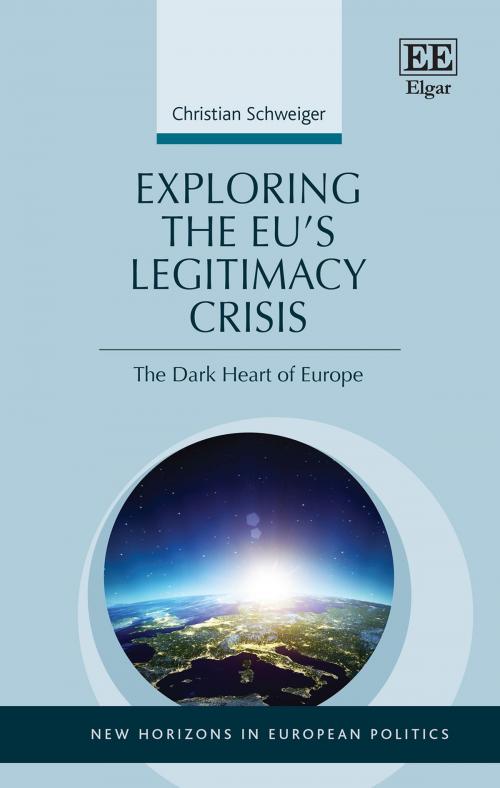Exploring the EU’s Legitimacy Crisis
The Dark Heart of Europe
Nonfiction, Social & Cultural Studies, Political Science, Government, Public Affairs & Administration, International, International Relations| Author: | Christian Schweiger | ISBN: | 9781784717858 |
| Publisher: | Edward Elgar Publishing | Publication: | November 25, 2016 |
| Imprint: | Language: | English |
| Author: | Christian Schweiger |
| ISBN: | 9781784717858 |
| Publisher: | Edward Elgar Publishing |
| Publication: | November 25, 2016 |
| Imprint: | |
| Language: | English |
Exploring the EU’s Legitimacy Crisis provides a profound analysis of the causes and the consequences of the EU's growing legitimacy problem. The prior permissive consensus in the EU has been markedly declining under persistent crisis conditions. Since the onset of the eurozone crisis the EU's governance has been narrowly driven by the semi-hegemonial leadership of Germany manifesting itself in functionalist and technocratic policy reforms concentrated on strengthening economic governance coordination. Other crucial policy areas have been neglected as member states show decreasing solidarity and a growing emphasis on national interests in response to mounting external challenges. This book examines these developments in detail by scrutinising the EU's ability to maintain legitimacy through political leadership, democratic accountability and governance efficiency.
Exploring the EU’s Legitimacy Crisis provides a profound analysis of the causes and the consequences of the EU's growing legitimacy problem. The prior permissive consensus in the EU has been markedly declining under persistent crisis conditions. Since the onset of the eurozone crisis the EU's governance has been narrowly driven by the semi-hegemonial leadership of Germany manifesting itself in functionalist and technocratic policy reforms concentrated on strengthening economic governance coordination. Other crucial policy areas have been neglected as member states show decreasing solidarity and a growing emphasis on national interests in response to mounting external challenges. This book examines these developments in detail by scrutinising the EU's ability to maintain legitimacy through political leadership, democratic accountability and governance efficiency.















